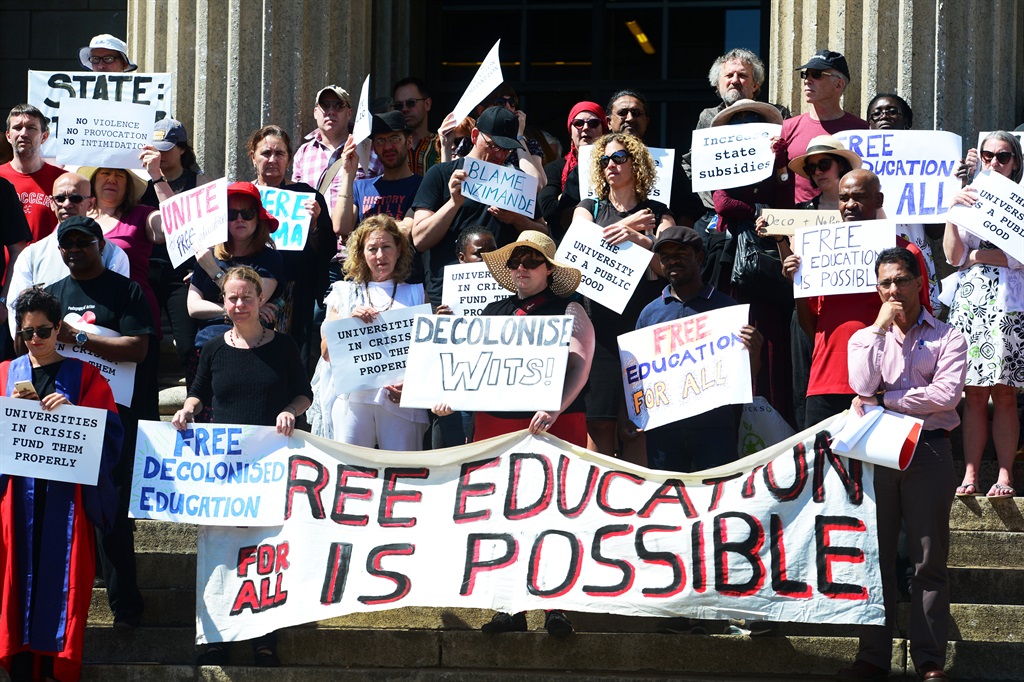
Private universities, a voucher system to access higher education, different tax proposals, e-learning and community education banks are some of the factors that the inquiry into the feasibility of free higher education has identified for investigation.
The commission, which President Jacob Zuma appointed last year in response to students’ demands for free higher education, has submitted its preliminary report to the presidency.
Althought the report says the commission has not yet arrived at a stage where it can identify and evaluate all sources of funding, it has identified the following for further interrogation:
» Alternative proposals for provision of higher education and training through internet cafes erected in electoral districts;
» Unused or underutilised funds deriving from various statutory and private obligations to contribute;
» A range of taxation proposals;
» More fruitful participation of the private sector including corporates, banks, industry and broad-based black economic empowerment schemes;
» Prospective savings in relation to wasteful government expenditure;
» The role of providers of private higher education;
» The possibility of establishing a community or cooperative education bank; and
» A voucher system for access to higher education facilities.
The report, which is available on the presidency’s website, says the commission is also yet to probe:
» The nature, accessibility and effectiveness of student funding by government, the private sector and foreign aid;
» The meaning and content of “fee-free” higher education and training;
» Alternative sources of funding;
» The social, economic and financial implications of fee-free higher education and training; and
» The feasibility of providing fee-free higher education and training.
Commissioners, says the report, have received more than 200 written submissions and listened to over 50 oral presentations from non-governmental organisations, government departments, individuals, private education providers, universities and colleges.
“There has been regrettably little participation by the resource-rich entities such as corporates, industry, the banking sector or organised labour, all of which might have been expected to contribute as the production of graduates and an academically prepared workforce is to their direct benefit.
"While a few students and student bodies have been prepared to engage with the commission, the great majority have either declined to do so or, in some instances, conducted themselves in an aggressive and anarchic fashion towards the commission and its work,” says the report.
The report says there is a strong view that in order for the financing of students to be made self-sustainable, prospective students should be given loans, which they will be expected to repay once their income reaches a certain threshold.
“A minority view of participants was that the state is the principal beneficiary of the fruits of higher education and training; therefore the successful student should not be burdened with any obligation to repay.
"An important influence in favour of the obligation to repay was the perceived need to render the funding process self-sustaining as fully and as quickly as possible.
"Ideally the loan obligation should be collected and enforced through the income tax authorities and not left to National Student Financial Aid Scheme, which has proved inefficient and ineffective in this regard.”
 |
| ||||||||||||




 Publications
Publications
 Partners
Partners








